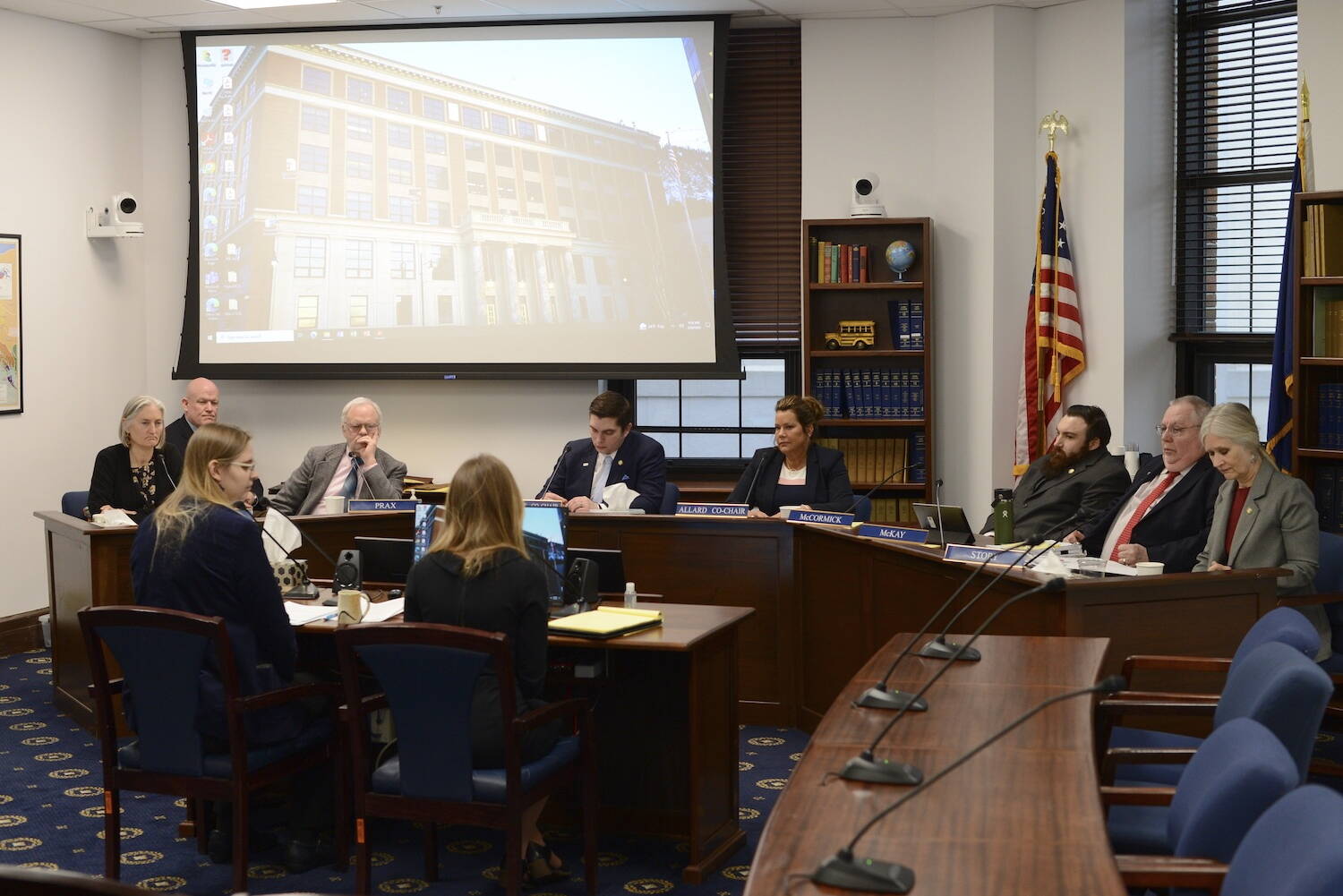During Alaska’s biggest education debate in years, the House Education Committee, one of the main avenues for debating policy in the Capitol, has been silent.
Because of a dispute between its two Republican co-chairs, the committee hasn’t met in three weeks.
“It’s kind of a tragedy that the education committee is not meeting when we’re still working on the most important priority of this session for both the majority and the minority,” said Rep. Rebecca Himschoot, I-Sitka and a minority-caucus member of the committee.
The two co-chairs, Reps. Jamie Allard, R-Eagle River, and Justin Ruffridge, R-Soldotna, said their disagreement has now been resolved and the committee will resume meetings next week, but the three-week shutdown came at a pivotal moment during debates within the Capitol and muted a possible channel of support for Gov. Mike Dunleavy’s ideas.
Last week, the governor issued an ultimatum to legislators, saying that he will veto a broadly supported education funding bill unless they advance several of his proposals.
He has until March 14 to decide whether to veto the bill, sign it, or allow it to become law without his signature.
Republican members of the House majority caucus generally support the governor’s ideas, and four of the committee’s seven members unsuccessfully voted for the governor’s proposal to pay cash bonuses to certified teachers, one of the conditions the governor listed in his ultimatum.
Participants in committee hearings could have made the case for the governor’s ideas, much in the same way that those in hearings of the Senate Education Committee over the past week have offered arguments and data against them.
Neither Allard or Ruffridge were willing to explain the reasons for the committee’s lapse when interviewed this week.
“I don’t know,” Allard said when asked why the committee wasn’t meeting.
Other members of the House were willing to explain, but only without being named because they fear retaliation by the co-chairs.
They said the dispute began during a Feb. 14 committee meeting about a bill reauthorizing vocational education funding.
Allard had intended to introduce a new version of the bill, but Ruffridge, who had not seen the new version, was caught off guard. Rather than dispute the issue in public, Allard adjourned the meeting and canceled the other meeting scheduled that week.
The disagreement was noted two days later by the political news site Alaska Landmine.
Afterward, the dispute escalated when Allard and Ruffridge failed to agree on a schedule for the following week’s meetings. Because they are co-chairs, their two signatures are required to set the schedule.
The same situation occurred for the last week of February and again for the first week of March.
“It’s not easy being a co-chair,” said Speaker of the House Cathy Tilton, R-Wasilla, on Thursday.
Similar disagreements have occurred in the past, and co-chairs frequently disagree about what bills to calendar for the upcoming week, but the length of the impasse and its timing was notable, multiple legislators said.
Tilton said that even with the committee inactive, members of the House still worked on education issues in budget subcommittees and in other committees.
Despite that “positive news,” as Tilton called it, the committee’s inactivity stymied work on any legislation.
The committee currently holds 24 bills; none of those can advance in normal order without a committee meeting.
Among the items blocked from advancement are bills dealing with opioids in classrooms, University of Alaska maintenance, civics education, and early childhood literacy. Priority issues identified by the governor, including charter schools and early reading intervention, also are among the stalled bills.
Members of the committee said the committee’s stoppage also has crippled its normal schedule of meetings with education officials across the state.
“We haven’t met with the university yet. We haven’t met with the (state) board of education. We have a lot of meetings that typically happen every year. And it’s really important that at this level, the legislative level, we connect with the other levels of government. That affects policy,” said Rep. Andi Story, D-Juneau and a minority-caucus member of the committee.
Last week, Tilton said that she expected the impasse to break, but she was prepared to reassign all of those bills to other committees if it did not.
“In the end, if there wasn’t something, I would have had to do that, but in the meantime, there is resolve (to meet again),” she said.
• James Brooks is a longtime Alaska reporter, having previously worked at the Anchorage Daily News, Juneau Empire, Kodiak Mirror and Fairbanks Daily News-Miner. This article originally appeared online at alaskabeacon.com. Alaska Beacon, an affiliate of States Newsroom, is an independent, nonpartisan news organization focused on connecting Alaskans to their state government.

